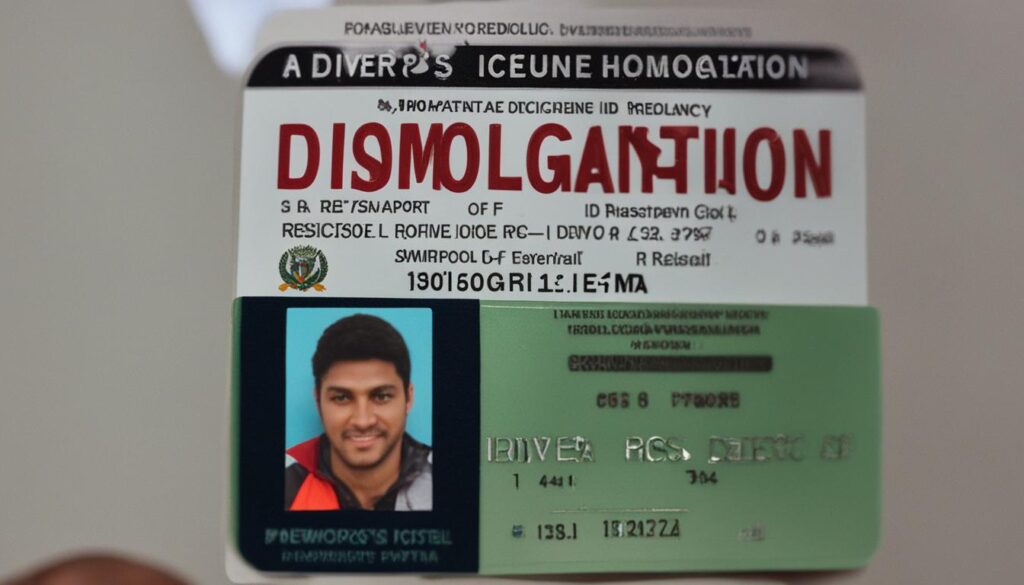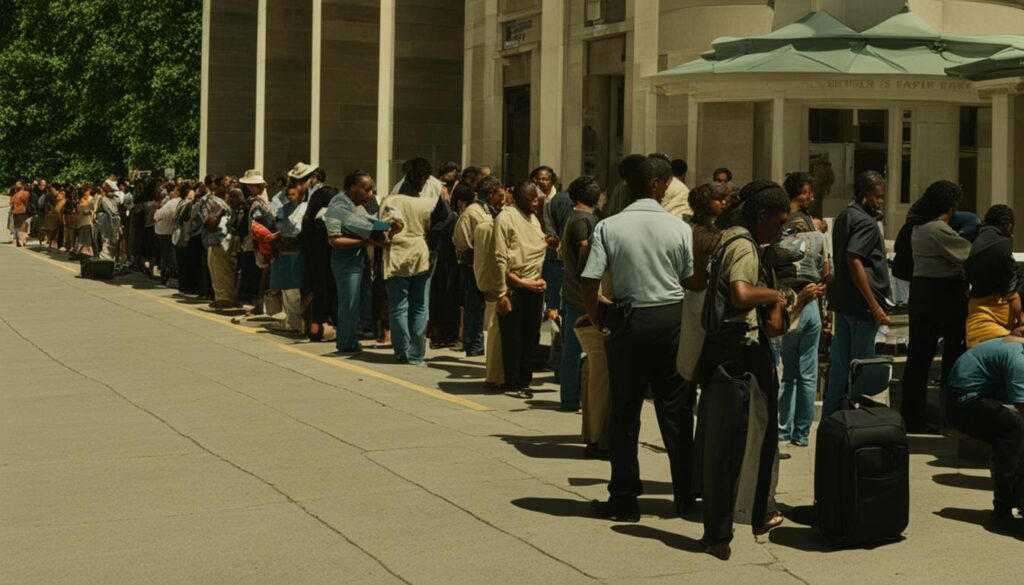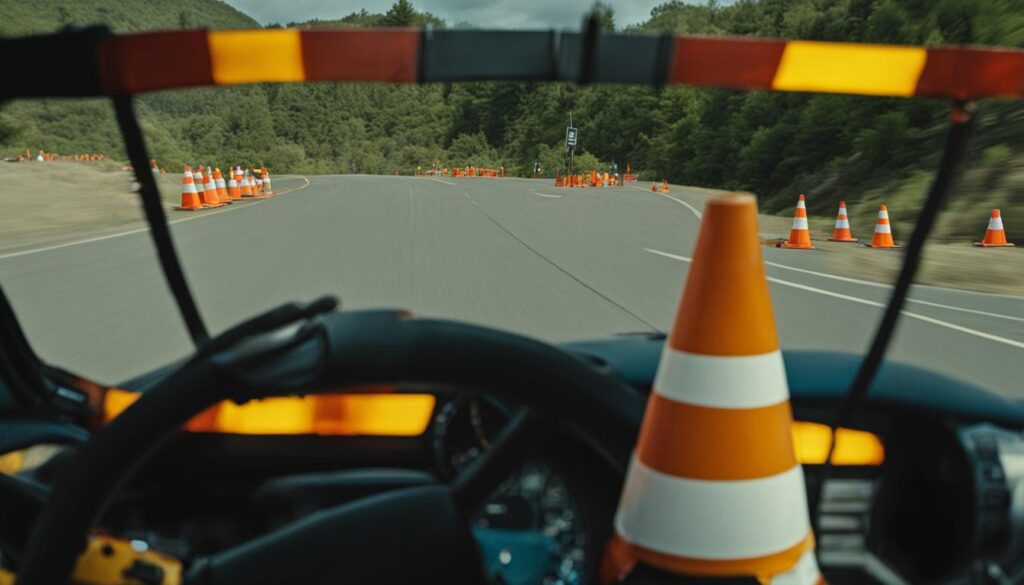Obtaining a Driver’s License in Costa Rica: Your Guide
If you’re planning to drive in Costa Rica, it’s important to understand the process of obtaining a driver’s license. This guide will provide you with step-by-step instructions and valuable information to help you navigate through the requirements and procedures involved.
Key Takeaways
- Residents and citizens of Costa Rica are eligible to obtain a driver’s license.
- Tourists are not allowed to obtain a driver’s license in Costa Rica.
- Once you have received your Costa Rican residency, you can homologate your foreign driver’s license.
- The homologation process requires approval from the Dirección General de Educación Vial and validation of your driver’s license at the Banco de Costa Rica.
- Specific requirements for homologation include proof of legal permanence, a valid driver’s license from your home country, a valid passport, a minimum stay in Costa Rica of more than 3 months and 1 day consecutively, and a medical certificate.
Now that you have a general idea of the process, let’s dive deeper into the requirements and steps to obtain a driver’s license in Costa Rica.
Proof of Residency and Identification
To obtain a driver’s license in Costa Rica, residents must provide proof of residency and a valid identification document. Proof of residency can be established through a valid residency card or a temporary residency certificate. This documentation is essential to demonstrate the applicant’s legal status in Costa Rica. Additionally, a valid identification document, such as a passport or cedula, is required to verify the individual’s identity.
Having a valid residency card or temporary residency certificate is crucial as it establishes that the applicant meets the residency requirements for obtaining a driver’s license. These documents serve as proof that the individual is a legal resident of Costa Rica and has fulfilled all the necessary obligations to reside permanently in the country.
Similarly, a valid identification document, such as a passport or cedula, is required to ensure that the applicant’s identity is verified during the driver’s license application process. This ensures that the license is issued to the correct individual and prevents any fraudulent activity.

Proof of Residency and Identification
| Document | Requirements |
|---|---|
| Residency Card | – Valid residency card – Issued by the Costa Rican immigration authorities – Shows legal permanent residence in Costa Rica |
| Temporary Residency Certificate | – Valid temporary residency certificate – Issued by the Costa Rican immigration authorities – Shows legal temporary residence in Costa Rica |
| Identification Document | – Valid passport or cedula – Provides proof of identity |
Note: It is important to ensure that all documents are valid and in good condition. Any expired or damaged documents may not be accepted during the driver’s license application process.
Homologation Process and Requirements
The homologation process is a crucial step for individuals with a valid driver’s license from their home country who wish to obtain a Costa Rican driver’s license without having to take the driving test. To successfully homologate their foreign driver’s license, applicants must meet specific requirements set by the Dirección General de Educación Vial. These requirements include:
- A valid and in good condition driver’s license from the home country
- A valid and in good condition passport
- Proof of legal stay in the country where the license was obtained
- A medical certificate
- Translation of the driver’s license if it is not in Spanish
Once these requirements are met, individuals can submit their documents to the Dirección General de Educación Vial for approval. It is important to note that the translation of the driver’s license, if required, must be done by an authorized translation service. After receiving approval, the next step is to validate the driver’s license at the Banco de Costa Rica and pay the necessary fees.
The homologation process offers a significant advantage to individuals with a foreign driver’s license, as it exempts them from taking the driving test. By meeting the specified requirements and following the necessary steps, applicants can obtain a Costa Rican driver’s license, allowing them to drive legally in the country.

Appointments and Process
Obtaining a driver’s license in Costa Rica involves a series of appointments that must be scheduled in advance. The first appointment is for homologation approval, which can be made through the COSEVI website during designated hours. It is important to check frequently for available slots as the availability of appointments varies. The homologation approval appointment is necessary to receive approval from the Dirección General de Educación Vial and proceed with the process.
Once approval is obtained, the next appointment is at the Banco de Costa Rica to validate the license and make the required payment. This step completes the homologation process and allows for the issuance of the Costa Rican driver’s license. As with the homologation appointment, it is recommended to check for appointment availability regularly, as slots may be limited.
The appointment scheduling process can be done online, and it requires providing personal information and selecting the desired service, license type, location, and appointment date. It is crucial to provide accurate information and ensure that all required documents are prepared before attending the appointments. By following the necessary steps and scheduling the appropriate appointments, individuals can successfully navigate the process of obtaining a driver’s license in Costa Rica.

COSEVI Appointment Scheduling Process
To schedule an appointment for homologation approval, follow these steps:
- Visit the COSEVI website during the designated appointment hours.
- Provide the required personal information, including name, contact details, and identification number.
- Select the desired service, which in this case is homologation approval for a driver’s license.
- Choose the location where the appointment will be held.
- Select the preferred appointment date and time from the available slots.
- Confirm the appointment details and submit the request.
BCR Appointment for License Validation
After receiving homologation approval, individuals must schedule an appointment at the Banco de Costa Rica for license validation and payment. The process for scheduling this appointment is as follows:
- Visit the Banco de Costa Rica website or branch to access the appointment scheduling system.
- Provide the required personal information, including name, contact details, and identification number.
- Select the desired service, which is license validation and payment.
- Choose the location where the appointment will be held.
- Check for availability of appointment slots and select the preferred date and time.
- Review the appointment details and confirm the request.
By following these appointment scheduling processes, individuals can navigate the necessary steps to obtain a driver’s license in Costa Rica. It is important to be aware of appointment availability and to schedule appointments in advance to ensure a smooth and efficient process.
The Driver’s License Test
In order to obtain a driver’s license in Costa Rica, applicants are required to pass both a written exam and a practical driving test. The written exam evaluates the applicant’s knowledge of local road rules and regulations, as well as their understanding of road signs and signals. It is important for applicants to study the local traffic laws and regulations in preparation for this exam. The practical driving test, on the other hand, assesses the applicant’s driving skills and ability to navigate the roads safely and responsibly.
The passing score for both the written exam and the practical driving test is determined by the authorities. It is crucial for applicants to meet the required criteria in order to successfully obtain a driver’s license in Costa Rica. Those who fail either test may be required to retake the exam or test at a later date. It is advisable for applicants to take a driver’s education course or practice with a local instructor to improve their chances of passing the tests.
The driver’s license test is designed to ensure that individuals are competent and responsible drivers on the roads of Costa Rica. By passing these tests, applicants demonstrate their ability to adhere to road rules and regulations, as well as their commitment to safety while driving. It is essential for all drivers to have a solid understanding of the local traffic laws and to continuously practice safe and responsible driving habits.

Key Points:
- The driver’s license test in Costa Rica consists of a written exam and a practical driving test.
- The written exam assesses knowledge of local road rules, regulations, and road signs.
- The practical driving test evaluates driving skills and the ability to navigate the roads safely.
- Passing scores for both tests are determined by the authorities.
Quote:
“The driver’s license test is designed to ensure that individuals are competent and responsible drivers on the roads of Costa Rica.”
By successfully passing the driver’s license test, individuals can obtain a Costa Rican driver’s license and enjoy the freedom and convenience of driving in the country.
Conclusion
Obtaining a driver’s license in Costa Rica is an essential step for expats living in the country. It allows them to navigate the roads with ease, ensuring compliance with local traffic laws and demonstrating their commitment to being responsible drivers and members of the community.
The process involves providing the necessary documentation, completing the homologation process, scheduling and attending appointments, and passing the driver’s license test. By following these steps and adhering to local driving laws and regulations, expats can obtain a Costa Rica driver’s license and safely enjoy the benefits of driving in the country.
Driving in Costa Rica as an expat requires understanding local traffic laws, being prepared for different road conditions, using GPS or maps for navigation, and driving defensively. Additionally, it is important to always wear a seatbelt and practice responsible driving habits. By driving responsibly and complying with traffic laws, expats can ensure their safety and the safety of others on the road.
Whether you are a long-term resident or a recent expat, obtaining a local driver’s license is crucial for a seamless driving experience in Costa Rica. Take the necessary steps, familiarize yourself with the local regulations, and enjoy driving responsibly and confidently in this beautiful country.
FAQ
Can tourists obtain a Costa Rican driver’s license?
No, only residents and citizens of Costa Rica are eligible to obtain a driver’s license in the country.
What is the homologation process for obtaining a Costa Rican driver’s license?
The homologation process allows individuals with a valid driver’s license from their home country to obtain a Costa Rican driver’s license without taking the driving test. It involves obtaining approval from the Dirección General de Educación Vial and validating the license at the Banco de Costa Rica. Requirements for homologation include a valid and in good condition driver’s license from the home country, a valid and in good condition passport, proof of legal stay in the country where the license was obtained, a medical certificate, and a translation of the driver’s license if not in Spanish.
How can I schedule an appointment for driver’s license homologation approval?
To schedule an appointment, visit the COSEVI website during the designated appointment hours. Appointments must be made in advance and are typically available on select days. After receiving approval, individuals must then schedule an appointment at the Banco de Costa Rica to validate the license and pay the required fee.
What is the driver’s license test like in Costa Rica?
The driver’s license test in Costa Rica consists of both a written exam and a practical driving test. The written exam assesses knowledge of local road rules, regulations, and road signs, while the practical driving test evaluates driving skills, including the ability to navigate and follow traffic signals and road signs. It is recommended to study local traffic laws and regulations in preparation for the written exam and consider taking a driver’s education course or practicing with a local instructor for the practical driving test.
What are some important tips for driving in Costa Rica as an expat?
Some important tips for driving in Costa Rica as an expat include understanding local traffic laws, being prepared for different road conditions, using GPS or maps for navigation, driving defensively, and always wearing a seatbelt. It is also crucial to obtain a Costa Rican driver’s license to ensure compliance with local traffic laws and regulations.




